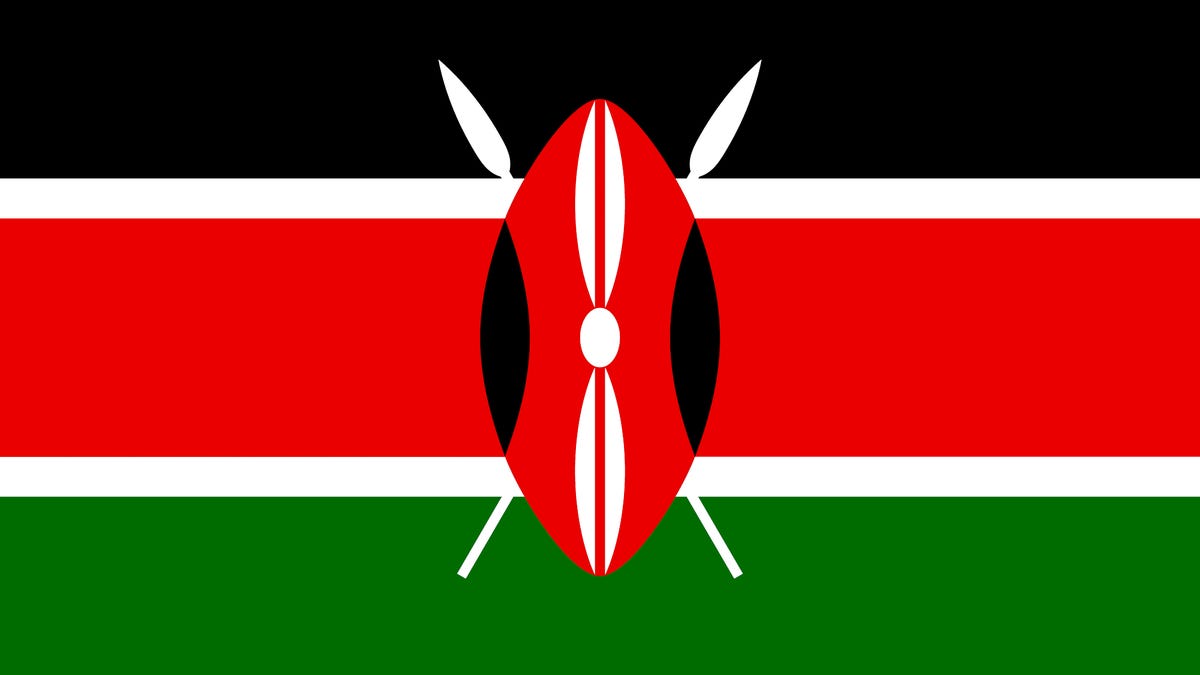Facebook Messenger bots help monitor Kenya election violence
Kenya's 7 million Facebook users are being encouraged to use Messenger to report incidents of voter suppression, ballot issues and, especially, violence.

Facebook Messenger bots are used for everything from ordering food to reading news to booking flights. In the hands of crisis-mapping platform Ushahidi, they're also monitoring election-related violence.
Tuesday is election day in Kenya, which in a year of critical elections around the globe might make it seem like just another day. But it's not.
Presidential elections in Kenya -- where dynasties face off, tribal allegiances are intense and bribery is rife -- can lead to bloodbaths. Last week, the head of information, communication and technology at Kenya's Independent Electoral and Boundaries Commission was found dead after he was kidnapped and tortured.
More violence is expected.
If it comes, Nairobi-based Ushahidi will be there to document it. The platform was born 10 years ago in the wake of a political, social-economic and humanitarian crisis in Kenya. From 2007 to 2008 in Kenya, up to 1,500 people were killed and hundreds of thousands were displaced from their homes. Since then, Ushahidi has been used not only in Kenya, but across the world, including in the US during last year's presidential election, which sparked 300 reports of violence.
Ushahidi is the Swahili word for "testimony." When it first launched, Ushahidi relied on people texting and emailing eyewitness accounts of violence so the data could be mapped out for all to see. For this election and for the first time, Kenya's 7 million active Facebook users can report issues they encounter during the voting process through the social network's messaging system. Volunteers will verify the reports before they're plotted on a timeline and map.
Ushahidi is mapping out any reports of voting issues.
The use of Facebook Messenger is just the latest example of the social networking titan's increased role in elections. Facebook's presence in the political process runs the gamut, from the flak it has taken for spreading lies that helped sway the US election to the tools it has shared before the UK and Kenya elections to combat fake news. One of the manifestations of the company's investment in artificial intelligence is Messenger.
"The Messenger bot makes it easy for citizens to answer the multiple questions in a report through the automated dialogue with the bot," Nat Manning, Ushahidi's interim executive director, said in a blog post. "Importantly, the bot includes the ability to easily send and receive text and images and interaction with structured messages."
The bots are equipped to deal with voter suppression, ballot issues and violence, which many Kenyans are nervous about.
Kenyan security forces are quite literally keeping people in line.
A decade on
I worked as a journalist in Nairobi back in 2009, when the 2007 election violence and its aftermath was still fresh in my colleagues' minds. Some had seen terrible things -- people beaten to death or even burned alive in the streets. Others were already thinking ahead to the next election and planning to take refuge in Uganda.
In 2013, there was thankfully much less violence, Manning said in an interview. However, reports of violence did still come in. A University of Pennsylvania study showed that around 75 percent of people who submitted a report to Ushahidi received a response.
Come 2017, and the fear of violence is again very real. The presidential election is a tight race between current President Uhuru Kenyatta and former Prime Minister Raila Odinga.
Reuters has reported carnage at Nairobi's bus station as people flee the capital for their ethnic heartlands. The New York Times tells of an exodus from the Great Rift Valley, where much of the 2007 violence took place. Nervous Kenyans are stockpiling food, and police have prepared first-aid kits, according to Reuters.
As of Monday evening, no violence had been reported to Ushahidi, Manning said. But developments in technology mean that when the reports do come in, the team will be better equipped to handle them than they were back in 2008.
"The increase in smartphone use certainly changes the entire system," Manning said. "In 2008 reports were predominantly SMS." Now users can submit via a dedicated app, Facebook Messenger, Twitter and embedded webforms.
"Our platform has also come a long way since 2008," he added. "We can sort and filter all the reports now by keyword, geolocation and time."
Data collected by Ushahidi about violence will be given to the police and other authorities in the hope that they may be able to tackle incidents as they arise. Citizens can access the information online at all times through Uchaguzi.or.ke and can sign up to receive alerts based on their own choice of filters.
To place a report via the Facebook Messenger Bot, voters should open Facebook Messenger, search for @uchaguzi2017kenya and submit their report along with their location and any photos.

